If you’re a small business owner navigating today’s digital economy, you’re probably keen on using inbound marketing to attract new customers and grow your business.
Rather than focusing on traditional advertising messages, this type of online marketing for small business prioritizes the sharing of useful ideas and information through high-value digital content to create experiences that resonate with customers and prospects. And it relies on your online presence to get it done.
But how do you build the kind of brand awareness online that attracts qualified leads who turn into customers? Given all the ways you could take this, it’s smart to focus first on where your biggest impact could be, then set your goals in that one key area. Identify the marketing moves that can quickly bring success and expand your efforts once you’ve made some progress. Do a data analysis of what works and what doesn’t for your business and use that insight to invest in proven sales-generating marketing.
And we’ve got more.
Better Online Marketing for Small Business: How You Can Break Through
We’ve put together a few tips to help small businesses like yours break through the digital clutter and come out shining on the other side.
- Flesh out a comprehensive marketing plan for your business
A go-to strategy involves building a plan that supports the customer journey, which is the decision process your prospects use for making a purchase. You need to generate high-quality content that attracts, engages, and delights your prospects and helps to convert them into customers. Here are a few things to consider:
- Understand your audience. Your customer is not just anybody. Your business has a niche and your customers are the people you appeal to. If you know their pain points and priorities, you’re better able to provide them with relevant answers and solutions and give them what they want. Developing buyer personas who represent your ideal customer and tell their story will help you craft marketing messages that resonate.
- Use your value proposition as differentiation. What unique benefit do you deliver to your customers? What does your business do better than anyone else? Your value proposition is sometimes referred to as the promise you make to your customers. It will set your business apart from the rest. Use it effectively in all of your marketing.
- Develop a strong brand identity and keep it consistent. Your brand is more than just your business name. Brand encompasses the name, the logo you design, other assets such as letterhead, signage, etc., the aesthetic and color palette you use, as well as your mission and values.
- Spend quality time creating your website. In our digital world, your website is everything. It is your online presence. It shows prospects who you are, what you offer, where you’re located, and how to contact you, among other things. A professional-looking website is a must. Consider building your website with a content management system (CMS) customizable template. Your website is capable of generating organic traffic on its own. With clear, easy-to-find information, your website can help inspire repeat business and foster customer loyalty. Remember to optimize your website for mobile devices.
- Try CRM, analytics, and other marketing tools
- A customer relationship management (CRM) system like HubSpot captures people’s information from your website. It stores all you need to know about your leads, prospects, and customers to help you create personalized marketing messages for them. Your CRM also helps you keep track of their interactions and identify sales opportunities more effectively.
- Analytics tools like Google Analytics easily track who’s looking at your site.
- Boost your Google ranking on search results pages (SERPs) with search engine optimization (SEO).
- Keyword research identifies the best keywords for your brand based on buyer persona research.
- Here’s a list of marketing tools to help.
- Start with leveraging the basics
- Word of mouth. What delighted customer wouldn’t tell their friends about you? It’s called user-generated content and you can make the most out of the free publicity when you measure customer satisfaction and encourage your customers to talk about you.
- Business pages on Facebook, Instagram, and Yelp. Having a presence on these sites is free and can boost your online authority, raise your search ranking, and help people find you, especially if your business has a local focus. What’s more, it will be easier for your prospects and customers to engage with you (almost) directly.
- Google My Business. Setting up this free profile is another way to help people find your business. You’re able to respond to customer reviews plus, you can use the page analytics to help you better understand how customers connect with your business and find out which keywords brought them to your business page.
- Local Chamber of Commerce. For an annual fee, your local business could be promoted on local government websites, their social media channels, and in their email newsletter.
- Get serious about blogging and creating gated content
- Blogging is a great way to attract people to your website, improve your website’s visibility, and generate organic traffic. Optimized, high-quality articles can improve your search engine ranking, help establish brand credibility, and position you as a thought leader in your industry. Your blog is a way to educate people who aren’t yet ready to buy about you and your industry. Adding calls-to-action (CTAs) to your posts encourages visitors to subscribe to your blog or receive emails.
- Gated content is any type of content that your website visitors can access only after exchanging their information through a form. The purpose of the form is to generate leads. Popular content types include guides, eBooks, original research, whitepapers, even webinars and other presentations such as videos.
- Use social media
- Social media is a powerful vehicle for promotion. Build a strategy and include only the platforms that make sense for your business, which is where your customers and prospects will likely spend their time. Make sure to post consistently to build brand awareness. Consider collaborating with influencers in your space who can help get your business noticed by the right audience.
- Social media is also a great place to use high-quality pictures and video content.
- Some businesses are experimenting with the new trend of using social media for customer service. Businesses can answer questions customers or followers ask through post comments on your posts or direct messages. This can boost your responsiveness quotient and give you an edge with credibility.
- Email can keep your business top of mind
- Email marketing not only nurtures leads but it shows your existing customers how much you appreciate them.
- According to HubSpot, 73% of millennials prefer communications from businesses to come via email.
- To drive real results, small businesses can connect with their audience, share great content, build credibility in their industry, and increase sales all on a modest budget.
- Create a community
- Connecting with other local businesses is a powerful way to expand your own business. Consider partnering with like-minded companies to create shared discounts, deals, coupons, and other giveaways and co-market them to your combined audience.
- Consulting with marketing agencies and hiring freelance talent to help with anything from website design and scaling content production to CRM, SEO, and more is good business. Just as you specialize in a certain type of work, these folks specialize in what they do. It can help hone your marketing strategy and asset creation, bringing them to a new level. Besides, if you’re ever in trouble and need help fast, you’ll know who to turn to.
- Invest in ads
- Paid ads are a quicker way to get results in the short term, as opposed to organic traffic which takes a while to build. Research shows that most brands use paid ads some of the time.
- Choices include pay-per-click (PPC) ad programs like Google Ads and Microsoft Advertising, or social media ads.
11outof11 Knows Small Business Marketing
When you’re ready to achieve better online marketing for your small business, connect with 11outof11. Request a complimentary call with an 11outof11 expert. Contact us to learn more.







.png)






